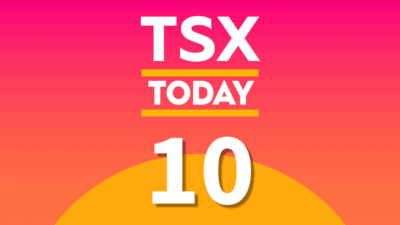Canada Goose Holdings (TSX:GOOS)(NYSE:GOOS) stock is almost never on sale. Since its IPO, shares have always traded between 50 and 100 times trailing earnings.
On May 29, that premium was erased, as the stock plummeted 30%.
Today, the stock trade at less than 40 times trailing earnings. If you’ve been hoping to scoop up shares of this high-growth stock, here are three reasons to take the leap.
Shares are finally cheap
While the premium may have been justified, Canada Goose stock has never been considered cheap. That all changed after the big drop.
While earnings estimates may come down a bit over the coming weeks, the stock now trades at just 28 times 2020 earnings. Based on future projections, shares trade at just 23 times 2021 earnings.
The S&P 500 and TSX Index trade at roughly 20 times earnings, so Canada Goose stock could be a bargain a few years down the road.
It’s not like the company has hit limits to growth, either.
Last quarter, the company grew sales across every geographic region. Year over year, revenue popped by 28% in Canada, 36% in the U.S., and 61% internationally.
Management still anticipates growing sales by at least 20% annually, with EPS growth of at least 25%. If those expectations are sustained for a few years, it’s hard to argue that Canada Goose stock is still expensive.
Decades of runway
Canada Goose is growing more slowly in its home market, but that’s because it already has an incredible penetration rate.
More than 5% of Canadians already own a Canada Goose jacket. Considering these jackets can run $1,000 or more, that’s a remarkable statistic.
While domestic brand loyalty is what gave Canada Goose its start, global domination is the future.
In many major markets, including the U.S., South Korea, and Japan, less than 1% of the population has purchased a Canada Goose garment. The biggest opportunity of all, China, has a penetration rate smaller than 0.1%.
By posting 61% year-over-year international sales growth, Canada Goose is proving that it’s not just a one-market wonder. Growing abroad can fuel decades of sales runway.
Acquisition target
With its market cap down to just $5 billion, Canada Goose would make an attractive acquisition candidate for a wide variety of suitors.
Take $33 billion behemoth VF Corp (NYSE:VFC), which owns venerable brands including The North Face, Timberland, Smartwool, Dickies, Eagle Creek, and Kodiak.
VF Corp stock currently trades at 22 times trailing earnings due to slowing growth across many of its brands. Over the last three years, revenue and EBITDA growth have only averaged 3% per year. Over the same period, Canada Goose has grown sales by an average 40% annually and increased EBITDA by 65% per year.
Plus, despite its renowned brand line-up, VF Corp sports gross margins of 52%. That’s above the industry average but below Canada Goose’s 65% mark. VF Corp has both the balance sheet and growing need to acquire another flagship brand like Canada Goose.
Apart from VF Corp, there plenty of other potential acquirers. Nike, Under Armour, Columbia Sportswear, and PVH Corp all make sense on paper. If the market won’t reward Canada Goose shares, a prospective purchaser could.







